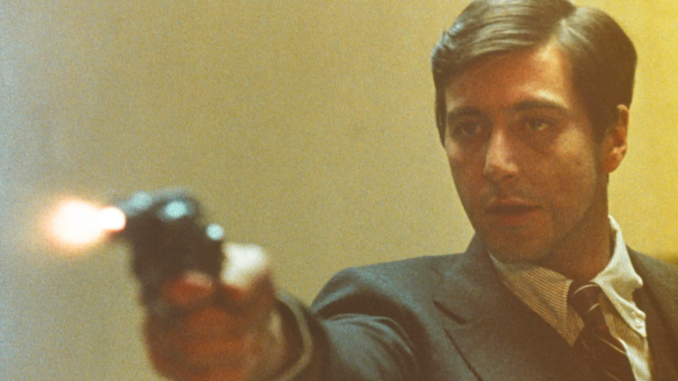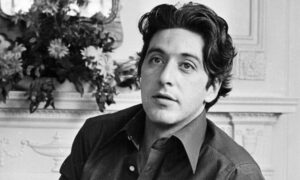
Al Pacino was nearly fired from The Godfather, the rest is history

On this, almost everyone was agreed: Al Pacino was looking like a disaster as Michael Corleone.
Shooting had begun in early 1971. Pacino recalls the Paramount suits looking at the rushes and saying: “What the hell is this kid doing? And he’s short to boot.” They thought he was delivering an “anemic” performance. The studio brass, Pacino says, “tried to fire me three times.”
There “was a movement not to have me in the part,” the 76-year-old actor recalls, sitting on the porch of his rental house in the flats of Beverly Hills. “I didn’t want me in the part.”
Paramount had wanted Ryan O’Neal or Robert Redford to play Michael in The Godfather, America’s great epic about violence and family. Pacino himself thought that he would be better as the hotheaded older brother, instead of in the role that secured his stardom. “Michael? Sonny would be more appropriate,” he remembers thinking.
But ultimately, he knew what he was doing. “I was trying to create a character who you don’t know where you’re at with him,” he says. “I knew it was a tough part to pull off. Michael’s so insular, so private.”
Writer and director Francis Ford Coppola believed. He had always envisioned Pacino, already an acclaimed New York stage actor, as Michael.
“His intelligence is what I noted first. He knows how to use his gifts,” says Coppola. “He uses what he has, this striking magnetic quality, this smoldering ambiance.”
Then came the Sollozzo scene.
Michael, teeth clenched, eyes darting, grabs the gun hidden in the restaurant bathroom and shoots Corleone rival Sollozzo and corrupt New York police captain McCluskey. It’s the law-abiding son’s first mob hit, and it seals his fate as his father’s replacement.
The scene sealed the actor’s fate, too. Pacino, who will receive a Kennedy Center Honor on December 4, stayed in the picture. Audiences saw what he was doing, having Michael’s character build with the story. Pacino, the New York Times noted, is “an actor worthy to have Brando as his father.”
Pacino is sipping tea, surrounded by hounds, in front of his white-columned house in this fabled, palm-lined enclave. He’s at ease, but he doesn’t fit, an inveterate New Yorker in a far too sunny place.
Buses loiter on his block every few minutes, tourists trying to steal a glimpse beyond the gates of the man whom film historian David Thomson in 2002 deemed “our greatest actor now.” Pacino is the winner of an Oscar (eight nominations), two Tonys, two Emmys, four Golden Globes (17 nominations) and a National Medal of Arts.
